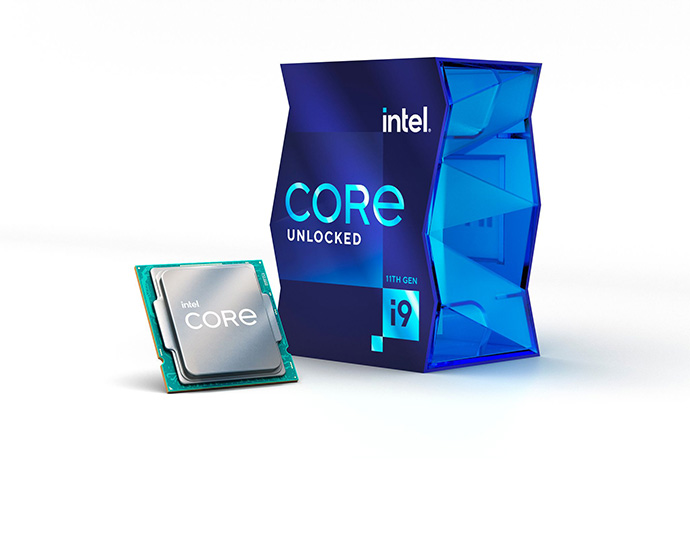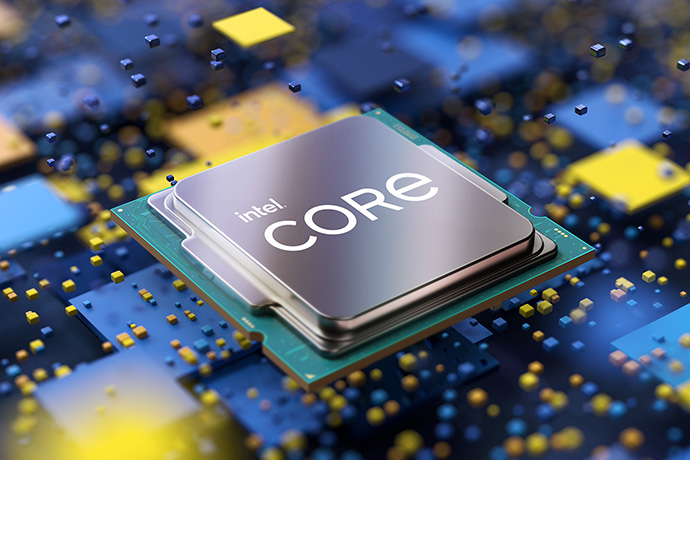
On March 16, 2021 (local time), Intel announced the 11th-generation Core Processor Rocket Lake-S for desktop PCs. The upper models, Core i9 and i7, are equipped with Intel UHD Graphics 750 that adopts the Xe architecture to enhance graphics performance.
Rocket Lake-S is equipped with 8 cores and 16 threads in the highest Core i9 series specification, and the memory is compatible with DDR4-3200. It supports Turbo Boost Max Technology 3.0, an Intel performance optimization technology, and Intel Thermal Velocity Boost, which brings out CPU performance, except for some models.

Like the i9, the Core i7 series has 8 cores and 16 threads and supports DDR4-3200 memory. It also supports Turbo Boost Max Technology 3.0. The Core i5 series also supports Turbo Boost Max Technology 3.0, but supports DDR4-3200 memory like the upper series. The cheapest Core i5-11400F costs $157.
In addition, the Core i3 and Pentium Gold series were announced as an improved version of the 10th generation core processor Comet Lake-S. Core i3 specification is equipped with 4 cores and 8 threads and supports DDR4-2666 memory. Pentium Gold is equipped with 2 cores and 4 threads and supports DDR4-2666 memory. Performance optimization technology is not supported. The Rocket Lake-S series is expected to launch on March 30, 2021. Related information can be found here.
On the other hand, actor Justin Long, who played Get a Mac, is appearing in a YouTube video that promotes that Apple’s own M1 chip-based Mac is inferior to a laptop with an Intel processor, this time appointed in the Intel ad series.
The actor was employed in the 2006-2009 Apple advertising campaign, and at that time played a role in promoting that the Mac was more suitable for creative purposes than the Windows PC. However, after appearing in the new Intel ad series (Justin Gets Real), he is comparing Macs and PCs in a realistic way, comparing M1 Macs and laptops with Intel chips after his introduction.
In one of these promotional videos released on Intel’s official YouTube channel, he admired that the Lenovo 2in1 laptop, the Yoga 9i, can cross notebooks and tablets. They show absurd gestures saying they lack back flexibility. In another video, a gamer who enjoys the MSI gaming laptop Stealth 15M agrees when he says that no one is playing on a Mac.
Other Macs have fewer external displays that can be connected to an M1 Mac that doesn’t have a touchscreen, or there are many options for a laptop with an Intel chip.
This is not the first time Intel has launched a campaign that is strongly conscious of the M1 Mac. In February, it released benchmark results claiming how laptops with 11th-generation core processors outperform the M1 MacBook series, and also posted a Twitter ad saying that PCs can’t do something that Macs can’t do.
The advertisement was counterproductive to the overseas media, saying that it was clear that Intel was afraid of Apple silicon, and an analysis that the benchmark that Intel released was manipulated. Related information can be found here.



